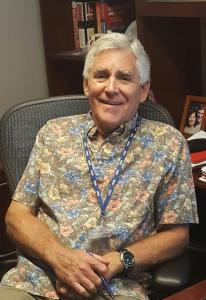Jerry Wetherall

Voices from the Science Centers
Voices from the Science Centers is an oral history initiative dedicated to documenting the institutional knowledge of fisheries scientists and administrators in the labs of NOAA’s Fisheries Science Centers.
Jerry Wetherall was born in San Francisco. He graduated from Humboldt State University with his undergraduate degree and received his PhD at the University of Washington. His dissertation focused on salmon, downstream migration of salmon, on the Duwamish River. He served in the Peace Corps in Uganda and Kenya,and then began his career with National Marine Fisheries Service in 1974 at the Honolulu lab. Jerry has had a long and distinguished career in NOAA Fisheries and has worked all over the Pacific on a variety of topics.
Interview contains discussions of: Peace Corps, tuna fishery, aku fleet and bait, skipjack, development of international management, high seas drift net fishery, international observer program, swordfish fishery, turtle interactions and lawsuits, lobster stock assessment, Scientific Information System, data visualization, GIFAs, data and databases.
Dr. Wetherall discusses his long career at the Honolulu lab. He provides a rich description of the history of fisheries work in the Pacific as well as the history of the Honolulu lab. He describes the changes which took place and his current work on data management.
Please Note: The oral histories in this collection are protected by copyright and have been created for educational, research and personal use as described by the Fair Use Doctrine in the U.S. Copyright law. Please reach out Voices@noaa.gov to let us know how these interviews are being used in your research, project, exhibit, etc. The Voices staff can help provide other useful resources related to your inquiry.
The NOAA mission is to understand and predict changes in climate, weather, oceans, and coasts, to share that knowledge and information with others, and to conserve and manage coastal and marine ecosystems and resources. The Voices Oral History Archives offers public access to a wide range of accounts, including historical materials that are products of their particular times, and may contain offensive language or negative stereotypes.
Voices Oral History Archives does not verify the accuracy of materials submitted to us. The opinions expressed in the interviews are those of the interviewee only. The interviews here have been made available to the public only after the interviewer has confirmed that they have obtained consent.
